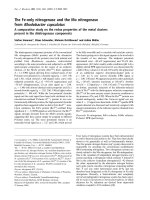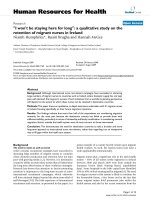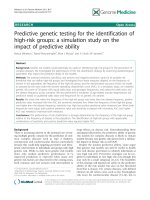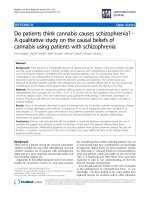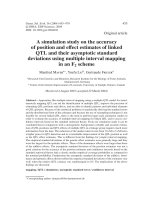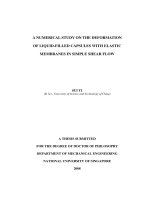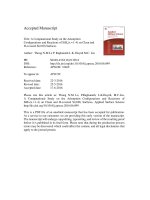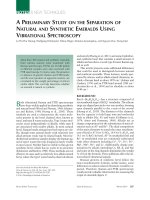A taxonomic study on the phytoplankton of Lake Uluabat (Bursa)
Bạn đang xem bản rút gọn của tài liệu. Xem và tải ngay bản đầy đủ của tài liệu tại đây (994.38 KB, 13 trang )
����������������������������������������������������������������������������������������������������������������������������������������������������������������������������������������������������������������������������������������������������������������������������������������������������������������������������������������������������������������������������������������������������������������������������������������������������������������������������������������������������������������������������������������������������������������������������������������������������������������������������������������������������������������������������������������������������������������������������������������������������������������������������������������������������������������������������������������������������������������������������������������������������������������������������������������������������������������������������������������������������������������������������������������������������������������������������������������������������������������������������������������������������������������������������������������������������������������������������������������������������������������������������������������������������������������������������������������������������������������������������������������������������������������������������������������������������������������������������������������������������������������������������������������������������������������������������������������������������������������������������������������������������������������������������������������������������������������������������������������������������������������������������������������������������������������������������������������������������������������������������������������������������������������������������������������������������������������������������������������������������������������������������������������������������������������������������������������������������������������������������������������������������������������������������������������������������������������������������������������������������������������������������������������������������������������������������������������������������������������������������������������������������������������������������������������������������������������������������������������������������������������������������������������������������������������������������������������������������������������������������������������������������������������������������������������������������������������������������������������������������������������������������������������������������������������������������������������������������������������������������������������������������������������������������������������������������������������������������������������������������������������������������������������������������������������������������������������������������������������������������������������������������������������������������������������������������������������������������������������������������������������������������������������������������������������������������������������������������������������������������������������������������������������������������������������������������������������������������������������������������������������������������������������������������������������������������������������������������������������������������������������������������������������������������������������������������������������������������������������������������������������������������������������������������������������������������������������������������������������������������������������������������������������������������������������������������������������������������������������������������������������������������������������������������������������������������������������������������������������������������������������������������������������������������������������������������������������������������������������������������������������������������������������������������������������������������������������������������������������������������������������������������������������������������������������������������������������������������������������������������������������������������������������������������������������������������������������������������������������������������������������������������������������������������������������������������������������������������������������������������������������������������������������������������������������������������������������������������������������������������������������������������������������������������������������������������������������������������������������������������������������������������������������������������������������������������������������������������������������������������������������������������������������������������������������������������������������������������������������������������������������������������������������������������������������������������������������������������������������������������������������������������������������������������������������������������������������������������������������������������������������������������������������������������������������������������������������������������������������������������������������������������������������������������������������������������������������������������������������������������������������������������������������������������������������������������������������������������������������������������������������������������������������������������������������������������������������������������������������������������������������������������������������������������������������������������������������������������������������������������������������������������������������������������������������������������������������������������������������������������������������������������������������������������������������������������������������������������������������������������������������������������������������������������������������������������������������������������������������������������������������������������������������������������������������������������������������������������������������������������������������������������������������������������������������������������������������������������������������������������������������������������������������������������������������������������������������������������������������������������������������������������������������������������������������������������������������������������������������������������������������������������������������������������������������������������������������������������������������������������������������������������������������������������������������������������������������������������������������������������������������������������������������������������������������������������������������������������������������������������������������������������������������������������������������������������������������������������������������������������������������������������������������������������������������������������������������������������������������������������������������������������������������������������������������������������������������������������������������������������������������������������������������������������������������������������������������������������������������������������������������������������������������������������������������������������������������������������������������������������������������������������������������������������������������������������������������������������������������������������������������������������������������������������������������������������������������������������������������������������������������������������������������������������������������������������������������������������������������������������������������������������������������������������������������������������������������������������������������������������������������������������������������������������������������������������������������������������������������������������������������������������������������������������������������������������������������������������������������������������������������������������������������������������������������������������������������������������������������������������������������������������������������������������������������������������������������������������������������������������������������������������������������������������������������������������������������������������������������������������������������������������������������������������������������������������������������������������������������������������������������������������������������������������������������������������������������������������������������������������������������������������������������������������������������������������������������������������������������������������������������������������������������������������������������������������������������������������������������������������������������������������������������������������������������������������������������������������������������������������������������������������������������������������������������������������������������������������������������������������������������������������������������������������������������������������������������������������������������������������������������������������������������������������������������������������������������������������������������������������������������������������������������������������������������������������������������������������������������������������������������������������������������������������������������������������������������������������������������������������������������������������������������������������������������������������������������������������������������������������������������������������������������������������������������������������������������������������������������������������������������������������������������������������������������������������������������������������������������������������������������������������������������������������������������������������������������������������������������������������������������������������������������������������������������������������������������������������������������������������������������������������������������������������������������������������������������������������������������������������������������������������������������������������������������������������������������������������������������������������������������������������������������������������������������������������������������������������������������������������������������������������������������������������������������������������������������������������������������������������������������������������������������������������������������������������������������������������������������������������������������������������������������������������������������������������������������������������������������������������������������������������������������������������������������������������������������������������������������������������������������������������������������������������������������������������������������������������������������������������������������������������������������������������������������������������������������������������������������������������������������������������������������������������������������������������������������������������������������������������������������������������������������������������������������������������������������������������������������������������������������������������������������������������������������������������������������������������������������������������������������������������������������������������������������������������������������������������������������������������������������������������������������������������������������������������������������������������������������������������������������������������������������������������������������������������������������������������������������������������������������������������������������������������������������������������������������������������������������������������������������������������������������������������������������������������������������������������������������������������������������������������������������������������������������������������������������������������������������������������������������������������������������������������������������������������������������������������������������������������������������������������������������������������������������������������������������������������������������������������������������������������������������������������������������������������������������������������������������������������������������������������������������������������������������������������������������������������������������������������������������������������������������������������������������������������������������������������������������������������������������������������������������������������������������������������������������������������������������������������������������������������������������������������������������������������������������������������������������������������������������������������������������������������������������������������������������������������������������������������������������������������������������������������������������������������������������������������������������������������������������������������������������������������������������������������������������������������������������������������������������������������������������������������������������������������������������������������������������������������������������������������������������������������������������������������������������������������������������������������������������������������������������������������������������������������������������������������������������������������������������������������������������������������������������������������������������������������������������������������������������������������������������������������������������������������������������������������������������������������������������������������������������������������������������������������������������������������������������������������������������������������������������������������������������������������������������������������������������������������������������������������������������������������������������������������������������������������������������������������������������������������������������������������������������������������������������������������������������������������������������������������������������������������������������������������������������������������������������������������������������������������������������������������������������������������������������������������������������������������������������������������������������������������������������������������������������������������������������������������������������������������������������������������������������������������������������������������������������������������������������������������������������������������������������������������������������������������������������������������������������������������������������������������������������������������������������������������������������������������������������������������������������������������������������������������������������������������������������������������������������������������������������������������������������������������������������������������������������������������������������������������������������������������������������������������������������������������������������������������������������������������������������������������������������������������������������������������������������������������������������������������������������������������������������������������������������������������������������������������������������������������������������������������������������eau
S. spp. (6 taxa)
DIVISION: CHRYSOPHYTA
CLASS: CHRYSOPHYCEAE
ORDER: CHRYSOMONADALES
Dinobryon divergens O.E.Imhof
ORDER: RHIZOCHRYSIDALES
Rhizochrysis limnetica G.M.Sm.
DIVISION: EUGLENOPHYTA
CLASS: EUGLENOPHYCEAE
ORDER: EUGLENALES
Euglena acus Ehrenb.
E. acus var. rigida Huebner
E. caudata Hübner
E. deses Ehrenb.
E. ehrenbergii G.A.Klebs
E. elastica Prescott
E. gracilis G.A.Klebs
E. oxyuris Schmarda
E. oxyuris var. minor Defl.
E. pisciformis G.A.Klebs
E. polymorpha P.A.Dang.
E. proxima P.A.Dang.
E. sp.
E. spathirhyncha Skuja
E. texta (Dujard.) Hübner
E. tripteris (Dujard.) G.A.Klebs
E. tripteris var. major Svirenko
Lepocinclis fusiformis (H.J.Carter) Lemmerm.
L. spp. (4 taxa)
L. wangi S.P.Chu
Phacus acuminatus A.Stokes
P. caudatus Huebner
P. helikoides Pochm.
P. longicauda (Ehrenb.) Dujard.
P. Nordstedtii Lemmerm.
P. pleuronectes (O.F.Müll.) Dujard.
Trachelomonas sp.
T. volvocina Ehrenb.
DIVISION: DINOPHYTA
CLASS: DINOPHYCEAE
ORDER: GYMNODINIALES
Gymnodinium excavatum Nygaard
ORDER: PERIDINIALES
Glenodinium borgei (Lemmerm.) J.Schiller
G. penardiforme (Er.Lindem.) J.Schiller
G. quadridens (F.Stein) J.Schiller
G. spp. (3 taxa)
Peridinium cinctum (O.F.Müll.) Ehrenb.
P. palatinum Lauterborn
P. spp. (2 taxa)
DIVISION: CRYPTOPHYTA
CLASS: CRYPTOPHYCEAE
ORDER: CRYPTOMONADALES
Chroomonas sp.
Cryptomonas ovata Ehrenb.
C. spp. (2 taxa)
DIVISION: CYANOPHYTA
CLASS: MYXOPHYCEAE
ORDER: CHROOCOCCALES
Aphanocapsa delicatissima W.West & G.S.West
A. elachista W.West & G.S.West
A. pulchra (Kütz.) Rabenh.
A. rivularis (Carmich.) Rabenh.
Aphanothece nidulans P.G.Richt.
Chroococcus limneticus Lemmerm.
C. limneticus var. subsalsus Lemmerm.
C. minor (Kütz.) Nägeli
Coelosphaerium dubium Grunow
C. kuetzingianum Nägeli
Gloeocapsa aeruginosa (Carmich.) Kütz.
G. rupestris Kütz.
Gomphosphaeria aponina Kütz.
G. lacustris Chodat
Merismopedia glauca (Ehrenb.) Nägeli
M. punctata Meyen
M. tenuissima Lemmerm.
Microcystis aeruginosa Kütz.
ORDER: HORMOGONALES
Anabaena affinis Lemmerm.
A. circinalis Rabenh.
A. spiroides Kleb.
Aphanizomenon gracile Lemmerm.
Lyngbya angustissima (West & G.S.West) A.Iltis
L. endophytica Elenkin & Hollerb.
L. epiphytica Hieron.
Nostoc sp.
Oscillatoria amphibia C.Agardh
O. angustissima W.West & G.S.West
O. formosa Bory
O. granulata Gardner
O. limnetica Lemmerm.
O. minima Gicklhorn
O. mougeotii (Kütz.) Lemmerm.
O. quadripunctulata Brühl & Biswas
O. subbrevis Schmidle
Phormidium tenue (Menegh.) Gomont
Plectonema nostocorum Bornet & Thur.
P. sp.
Pseudanabaena catenata Lauterborn
Raphidiopsis curvata F.E.Fritsch & M.Rich
Spirulina laxa G.M.Sm.
S. laxissima G.S.West
483
A Taxonomic Study on the Phytoplankton of Lake Uluabat (Bursa)
(Fricke) Hust. Asterionella formosa Hassall,
Cymatopleura solea (Bréb.) W.Sm., Synedra delicatissima
var. angustissima Grunow, Synedra ulna (Nitzsch)
Ehrenb., Nitzschia acicularis (Kütz.) W.Sm., N. holsatica
Hust., N. palea (Kütz.) W.Sm., N. lorenziana var. subtilis
Grunow and Surirella biseriata Bréb. were the most
common pennate diatoms in the phytoplankton. Although
centric diatoms had fewer species in the phytoplankton,
they were more abundant than pennate diatoms.
Most diatoms were of benthic origin (epipelic,
epiphytic, epilithic), resuspended by waves into the water.
Hutchinson (1967) stated that Cyclotella, Stephanodiscus
and Melosira among centric diatoms and Fragilaria,
Asterionella and Synedra among pennate diatoms are
common in phytoplankton. Cymbella, Nitzschia, Surirella
and Cymatopleura are generally benthic and many such
species were found in the phytoplankton of Lake Uluabat.
Mooney (1989) stated that Surirella and Cymatopleura in
particular are strongly benthic forms and that it is
difficult to find them in phytoplankton due to their
weight. Even so, the above 2 genera were frequently
detected in the phytoplankton of Lake Uluabat. Akfl›ray
stated that in Artüz and Korkmaz’s reports, Cocconeis, a
benthic diatom, was more common in the phytoplankton
in spring and winter and formed 22.12% of the total
phytoplankton in Lake Uluabat in 1977 (Dalk›ran et al.,
2003). This lake is shallow and wave disturbance will
tend to introduce such forms to the plankton; free
planktonic forms may then be comparatively scarce.
Other studies confirm this (Demirhindi, 1972; Akbulut &
Y›ld›z, 2002). In deep lakes with small areas of shallow
water, few benthic diatoms have been detected in the
plankton (Aykulu and Obal›, 1981).
Chlorophyta was the second dominant group.
Chlorococcales were dominant with 59 taxa, most
commonly
Actinastrum,
Ankistrodesmus,
Chlamydomonas, Coelastrum, Eudorina, Micractinium,
Monoraphidium, Pandorina, Pediastrum, Scenedesmus,
Sphaerocystis and Tetraedron. These genera are often
found in shallow and eutrophic lakes (Hutchinson, 1967).
The cyanophytes Anabaena affinis Lemmerm.,
Anabaena spiroides Kleb. and Microcystis aeruginosa
Kütz. formed blooms in summer. Other Cyanophyta,
Aphanocapsa spp., Chroococcus spp. and Gloeocapsa
spp., were also frequently observed.
Euglena and Lepocinclis (Euglenophyta), which grow
rapidly in rich organic media, were important. Euglena
caudata Hübner, E. proxima P.A.Dang. and Lepocinclis
wangi S.P.Chu were frequent, but not abundant.
Chrysophyta, Cryptophyta and Dinophyta were less
important than other divisions.
A further study on Lake Uluabat showed that the lake
has typical eutrophic characteristics (Dalk›ran et al.,
2003). Average values of some physical and chemical
parameters for 10 observation stations were as follows:
temperature: 4.80-29.08 °C, dissolved oxygen: 5.5-9.9
mg/l, pH: 7.5-9.0, NO3-N: 0-4.20 mg/l, O-PO4-2: 0.00450.0452 mg/l, Si: 0.733-3.620 mg/l, SO4-2: 50.52132.55 mg/l. Nutrient load was high with large variations
with respect to time and sampling stations (Dalk›ran et
al., 2003). The high nutrient content in Lake Uluabat is
associated with large algal blooms in summer.
Waters having a eutrophic character may shelter
species which can adapt to quite different ecosystems
(Round, 1984). Algal populations adapted to oligotrophic
and eutrophic ecosystems are different from each other.
For this reason, the productivity of the lake affects the
algal community to a large extent. Various factors may
influence the species diversity of the lake such as the
intensity of residential and industrial areas around the
lake, inflow of nutrient and suspended materials from
Mustafakemalpafla, Orhaneli and Emet creeks, dynamics
of nutrients in the lake, rich boron reserves in the
surrounding environment, geological and sedimental
structure of the lake, shallow water depth and continuous
agitation caused by the winds, sediment infill, emergent
wetlands around the lake, and local climatic conditions.
In this study, a very rich phytoplankton composition
was observed in Lake Uluabat, with eutrophic species
dominant. This species diversity in Lake Uluabat is the
highest yet found among all the lakes of Turkey.
References
Akbulut A & Y›ld›z K (2002). The Planktonic Diatoms of Lake Ç›ld›r
(Ardahan-Turkey). Turk J Bot 26: 55-75.
Aykulu G & Obal› O (1981). Phytoplankton Biomass in the Kurtbo¤az›
Dam Lake. Commun Fac Sci Univ Ank C2 (24): 29-45.
APHA (1985). Standard Methods for the Examination of Water and
Wastewater. Washington: American Public Health Association.
Bourrelly P (1966). Les Algues d’Eau Douce. Tome I: Les Algues Vertes.
Paris: Editions N. Boubeé & Cie.
484
D. KARACAOLU, fi. DERE, N. DALKIRAN
Bourrelly P (1968). Les Algues dEau Douce. Tome II: Les Algues Jaunes
et Brunes. Paris: Editions N. Boubeộ & Cie.
Bourrelly P (1970). Les Algues dEau Douce. Tome III: Les Algues Bleues
et Rouges. Paris: Editions N. Boubeộ & Cie.
Compộre P (1974). Algues de la Region du Lac Tchad II- Cyanophyceộes.
Cah ORS TOM ser Hydrobiol 8(3/4): 165-198.
Dalkran N, KaracaoÔlu D, Dere fi, fientỹrk E & ầubuk H (2003).
Fiziksel, Kimyasal ve Biyolojik Faktửrlerin SÔ Gửl Sistemlerine
Etkisi: Uluabat Gửlỹ ệrneÔi. Tỹrkiyenin Kta ỗi Su Kaynaklarnda
Kirlilik Etkileri ve ầửzỹm ệnerileri Bildiriler. Haziran 2003. pp.
177-190.
Demirhindi ĩ (1972). The Preliminary Investigations in the Coastal
Lagoons and Several Brackish Water Lakes of Turkey. ĩ Fen Fak
Mec Seri B 37 (3-4): 205-232.
Findlay DL & Kling HJ (1979). A Species List and Pictorial Reference to
the Phytoplankton of Central and Northern Canada (in two parts).
Winnipeg: Fisheries & Marine Service.
Hustedt F (1930). Bacillariophyta (Diatomeae). Heft : 10 a Pascher Die
Susswasser Flora Mitteleuropas. Jena: Gustav Fischer Pub.
Hutchinson GE (1967). A Treatise on Limnology. Volume II:
Introduction to Lake Biology and the Limnoplankton. New York:
John Wiley & Sons.
Krammer K & Lange-Bertalot H (1991b). Sỹòwasserflora von
Mitteleuropa Bacillariophyceae. 4. Teil: Achnanthaceae, Kritische
Ergọnzungen zu Navicula (Lineolatae) und Gomphonema
Gesamtliteraturverzeichnis Teil 1-4. Stuttgart, Jena: Gustav
Fischer Verlag.
Krammer K & Lange-Bertalot H (1997). Sỹòwasserflora von
Mitteleuropa Bacillariophyceae. 2. Teil: Bacillariaceae,
Epithemiaceae, Surirellaceae. Berlin: Spektrum Akademischer
Verlag.
Mooney EP (1989). A study of Lough Corrib, western Ireland and its
phytoplankton. Hydrobiologia 175: 195-212.
Patrick R & Reimer CW (1966). The Diatoms of the United States. Vol.
I: Fragilariaceae, Eunotiaceae, Achnanthaceae, Naviculaceae.
Philadelphia: The Academy of Natural Sciences of Philadelphia.
Patrick R & Reimer CW (1975). The Diatoms of the United States. Vol.
II: Entomoneidaceae, Cymbellaceae, Gomphonemaceae,
Epithemiaceae. Philadelphia: The Academy of Natural Sciences of
Philadelphia.
Prescott GW (1973). Algae of the Western Great Lakes Area. Dubuque,
lowa: Wm. C. Brown Company Publishers.
Round FE (1984). The Ecology of Algae. Cambridge: Cambridge
University Press.
Krammer K & Lange-Bertalot H (1991a). Sỹòwasserflora von
Mitteleuropa Bacillariophyceae. 3. Teil: Centrales, Fragilariaceae,
Eunotiaceae. Stuttgart, Jena: Gustav Fischer Verlag.
485
